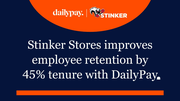Omnichannel
The endless aisle: A labyrinth of choice or a paradise of possibility?
By embracing AI-first search and product discovery technology, retailers can transform the endless aisle from a labyrinth of overwhelm to a paradise of possibility. This translates to a more navigable and efficient shopping experience for customers.

October 15, 2024 by Roland Gossage — CEO, GroupBy
The internet has revolutionized shopping, transforming the way we browse, compare, and ultimately purchase products. Gone are the days of limited brick-and-mortar store selections.
Today, online retailers offer a seemingly endless aisle of products, catering to diverse needs and offering a world of unique items at our fingertips.
However, this very abundance presents a double-edged sword for both customers and retailers. While the endless aisle offers a plethora of possibilities, it can also introduce challenges like information overload, decision fatigue, and discoverability issues, ultimately leading to a frustrating shopping experience.
The perils of plenty: Customer challenges in the endless aisle
Imagine a library with millions of meticulously cataloged books, but no librarian to guide you. This is akin to the frustration of browsing online stores with endless product listings. The sheer volume of options can be overwhelming, leading to a phenomenon known as information overload.
Modern shoppers, accustomed to instant gratification, often find themselves spending an excessive amount of time browsing, abandoning searches feeling overwhelmed, or resorting to generic searches like "blue shirt" because navigating complex category structures can be a chore.
This analysis paralysis, often termed "decision fatigue," can have detrimental consequences. Customers may abandon purchases altogether, settle for a less-than-ideal option (leading to increased returns), or simply become frustrated and take their business elsewhere.
Furthermore, the endless aisle creates discoverability issues. Relevant products can easily get lost in the sea of options, hindering impulse purchases and the exploration of new products. A customer might be interested in a specific type of running shoe but struggle to find it amidst a vast list of footwear, ultimately abandoning their search altogether. This problem is compounded by the limitations of traditional search functionalities.
Lost in translation: How traditional search fails in the endless aisle
Current search tools often struggle with complex queries or user intent. Imagine searching for "running shoes for beginners with wide feet" and receiving a generic list of running shoes, none of which cater to your specific needs.
A 2023 study by Google revealed a staggering 94% of global consumers have encountered irrelevant results while searching a retailer's website. This ineffectiveness is compounded by poor product categorization and navigation. Often, category structures are complex and lack intuitive filters, leaving customers feeling lost in a digital maze. The average cost of a lost sale for retailers due to this friction is a hefty $72.
On top of these challenges, the lack of personalization further hinders product discovery. Generic product listings fail to resonate with individual customer needs and preferences. Imagine browsing for a winter jacket but seeing a generic list that doesn't consider your usual size, preferred brand, or the specific features you're looking for, like a waterproof shell or a removable hood. Research by Google indicates that people are 40% more likely to spend more than planned when they perceive the shopping experience to be highly personalized.
Charting a new course: AI-first search and product discovery as the solution
So, how can retailers bridge the gap between the endless aisle's potential and the reality of customer frustration? The answer lies in leveraging the power of AI-first search and product discovery technology.
AI-First Search: Understanding the customer's "why"
AI-first search goes beyond traditional keyword matching. It utilizes artificial intelligence to understand the user's intent behind the search query. This allows for highly relevant and personalized results, even for complex questions, conversational searches, long-tail queries, or even misspelled terms. Imagine searching for "running shoes for beginners with wide feet" and receiving results that perfectly match your needs, not just a generic list of running shoes. AI-first search can even handle misspelled keywords or incomplete queries, understanding the underlying intent and surfacing relevant products. This ensures a smoother and more efficient shopping experience for customers, reducing frustration and leading to higher conversion rates.
Advanced Navigation and Personalized Recommendations: Tailoring the endless aisle
Advanced product categorization and navigation go hand-in-hand with AI-first search. Intuitive browsing experiences with clear category structures, relevant filters based on product attributes, and faceted search functionalities can help customers find what they're looking for quickly and easily. Imagine browsing for winter jackets and being able to filter by size, brand, waterproof rating, and features like a removable hood. This allows for a more targeted search experience, saving customers valuable time and frustration.
Finally, AI can personalize the endless aisle for each customer. By analyzing past purchases, browsing behavior, and real-time intent, retailers can recommend products that resonate with individual preferences. This fosters product discovery, sparks impulse purchases, and leads to a more satisfying shopping experience.
For example, a customer looking at a specific type of camera might be shown compatible lenses, tripods, or memory cards based on their browsing history, increasing the average order value. Personalized recommendations not only benefit customers by surfacing relevant products they might not have considered, but also benefit retailers by boosting sales and reducing reliance on generic promotions.
Benefits for retailers: A paradise regained
The endless aisle, when harnessed effectively with AI-first search and product discovery technology, can become a paradise for retailers as well. Here's how:
- Increased revenue and conversions: By ensuring customers find the products they're looking for quickly and easily, AI-first search translates to higher conversion rates and increased average order value. Personalized recommendations further incentivize purchases, leading to a significant boost in revenue.
- Reduced friction and improved customer satisfaction: A smoother shopping experience with intuitive navigation and relevant results leads to happier customers. Reduced frustration and decision fatigue translate to increased customer satisfaction and loyalty, fostering repeat business.
- No more hidden inventory: AI can analyze customer behavior and search patterns to predict future demand, allowing retailers to optimize inventory management and ensure they have the right products in stock at the right time. This eliminates the issue of hidden inventory, where desirable products are out of stock while irrelevant ones remain on the shelves.
- Data-driven insights: AI-powered search and product discovery platforms provide valuable customer data and insights into browsing behavior and purchase decisions. Retailers can leverage this information to optimize product assortment, refine marketing strategies, and personalize future promotions, further enhancing the shopping experience.
The future of shopping: A seamless symphony
The endless aisle holds immense potential but can also create digital shopping friction if not managed effectively. Customers today are no longer willing to tolerate the frustration of information overload and irrelevant search results.
By embracing AI-first search and product discovery technology, retailers can transform the endless aisle from a labyrinth of overwhelm to a paradise of possibility. This translates to a more navigable and efficient shopping experience for customers, ultimately leading to increased revenue, improved conversion rates, and a loyal customer base that truly benefits from the vast selection offered by the endless aisle.
As AI technology continues to evolve, the future of online shopping promises a seamless symphony of intuitive navigation, personalized recommendations, and a truly efficient shopping experience that caters to individual needs and preferences. In this future, both customers and retailers can finally unlock the true potential of the endless aisle.
About Roland Gossage
As CEO of GroupBy, Roland Gossage is transforming the eCommerce digital experience and bridging the gap between merchant and consumer by enabling seamless online customer shopping experiences. A visionary and seasoned tech executive, Roland brings years of search and AI expertise from his years at Endeca, one of the trailblazers of enterprise search, where he led their North American operations.
 ChatGPT
ChatGPT Grok
Grok Perplexity
Perplexity Claude
Claude




